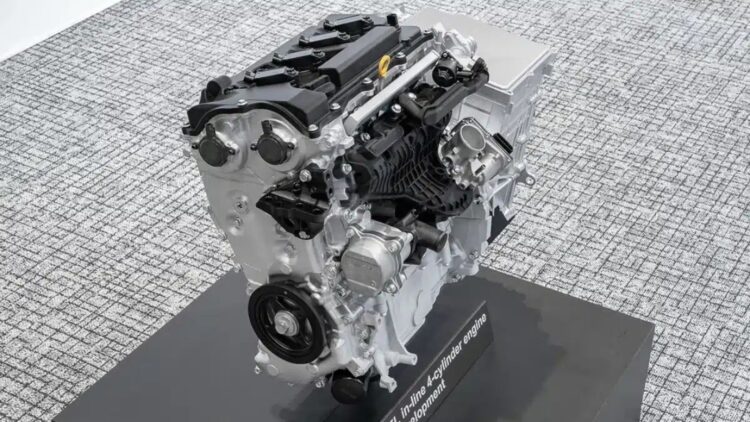Toyota Company has been at the forefront in the production of automobiles, and as expected, they have not been left behind in developing new and enhanced engines. The Japanese automaker plans to invest in small and efficient engines, which are believed to transform the auto market. The new engines are compact, robust, and cleaner than the previous models, making this a big step forward in internal combustion engine (ICE) technology.
Toyota’s new small engines: Compact yet powerful
Toyota’s latest engine lineup includes three new inline-four engines: a customarily aspirated 1.5-L, a 1.5-L turbocharged engine, and a 2.0-L turbocharged engine. As with previous engines, these engines are also intended to be more compact and powerful. This naturally aspirated 1.5-liter engine is about 10% smaller in volume and height than the current model but more powerful and efficient. Such reduction in size also means that the car hood is lower, enhancing the car’s aerodynamic performance and, therefore, its fuel efficiency.
The turbocharged 1.5-liter will be replacing the 2.5-liter engine as used in the models such as RAV4 and Camry. This new engine is 20% smaller in volume and 15% less in height, producing the same power as before and 30% more efficient. The compact design also helps the vehicle be better packaged and produce fewer emissions, which is coherent with Toyota’s environmental policy.
The most powerful of the new engines is the new generation turbocharged 2.0-litre engine, which is 10 percent smaller in volume and height than the current 2.4-litre turbo engine. It claims to deliver much higher power output and 30% better fuel economy. Toyota has been concerned with efforts to develop small and efficient engines, showing much commitment towards invention and ecology.
The role of carbon-neutral fuels in Toyota’s strategy
Toyota’s new engines are compatible with fossil fuels and other green fuels such as liquid hydrogen, synthetic fuels, and biofuels. This flexibility is part of Toyota’s larger environmental plan to cut carbon dioxide emissions to a bare minimum. The idea of evolving engines that are compatible with carbon-neutral fuels as a way of elongating the life of ICEs while at the same time reducing their carbon footprint is the main plan of Toyota.
These new engines, developed jointly with Mazda and Subaru, show how the car industry must work together to reach carbon neutrality. Toyota’s chairman, Akio Toyoda, thinks the internal combustion engine is not the problem but the carbon it produces. Instead of completely writing off ICE technology, Toyota is dedicating its efforts to making the technology cleaner by using cleaner fuels and more efficient engines.
Another new business Toyota is currently looking at is the development of a carbon-neutral fuel supply chain in cooperation with the Japanese petroleum companies and Mitsubishi Heavy Industries. This effort will also help maintain a consistent fuel supply to meet the needs of consumers who use these fuels and other related demands. Toyota has a high demand for sustainable displacement and an improved carbon footprint within its vehicles and throughout more industries, including the transportation and auto sectors.
The future of Toyota’s engine technology
New engines developed by Toyota are targeted at hybrids and plug-in hybrids, which aligns with Toyota’s vision of a complex approach to carbon neutrality. Using highly efficient and compact engines with electric drive units will help Toyota make hybrids cheaper and more diverse. This approach allows consumers to benefit from the best of both worlds: the efficiency and power of ICEs and the consequences of electrification of transport.
The new engines will likely feature in electrified vehicles by the end of the fiscal year ending in March 2026, a key step towards Toyota’s sustainable mobility. The company’s partnership with Mazda and Subaru will also help develop hybrid and carbon-neutral elements and offer the consumer a broader range of options for green car use.
Innovative and sustainable approaches also form part of Toyota’s new engines. By developing new, more compact engines and investigating carbon-neutral fuels, Toyota is creating the possibility of a clean tomorrow while keeping the excellence customers crave for their cars.
New small engines are peculiar examples of new-generation car engines that are compact, powerful, and more efficient than their predecessors. Hybrid applications and carbon-neutral fuels are the future, and with its LMP1 hybrid race car, Toyota is paving the way. All these innovations lower emissions and improve performance, affirming Toyota’s stewardship and focus on delivering outstanding performance.

